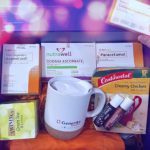Smog, a term that combines “smoke” and “fog,” is a common environmental issue in many urban areas around the world. It consists of a mixture of pollutants, primarily ground-level ozone and fine particulate matter, and can have serious health consequences. To safeguard your family’s well-being during episodes of smog, it’s essential to take proactive measures. In this blog post, we will explore various strategies to help you keep your family safe when smog levels rise.

- Stay Informed
One of the first steps in ensuring your family’s safety during smoggy conditions is to stay informed about air quality levels in your area. You can achieve this by checking local weather forecasts or using air quality monitoring apps and websites. These resources provide real-time information on air pollution levels, including the concentration of harmful pollutants such as PM2.5 (fine particulate matter) and ozone. Knowing when smog is expected can help you plan activities accordingly.
- Limit Outdoor Activities
When smog levels are high, it’s advisable to limit outdoor activities, especially for children, the elderly, and individuals with respiratory conditions. Instead, consider indoor alternatives such as board games, reading, or indoor exercise to keep everyone engaged and healthy.
- Use Air Purifiers
Investing in air purifiers with HEPA filters can significantly improve indoor air quality. These devices can remove fine particulate matter and other pollutants from the air, helping your family breathe easier, especially during smoggy conditions. Place air purifiers in commonly used areas like bedrooms and the living room for maximum effectiveness.
- Create a Clean Indoor Environment
Apart from using air purifiers, there are additional steps you can take to maintain a clean indoor environment. Keep doors and windows closed to prevent smog from entering your home. Use weatherstripping to seal gaps around doors and windows to reduce air leakage. Regularly clean and vacuum your home to minimize indoor dust and allergens.
- Stay Hydrated
During smoggy periods, it’s essential to stay hydrated. Drinking plenty of water helps flush toxins from your system and keeps your respiratory passages moist, making it easier to breathe in polluted air. Encourage your family members to drink water throughout the day, and limit the consumption of caffeinated or sugary beverages.
- Use Masks When Necessary
In extreme smog conditions, wearing masks can provide a layer of protection against inhaling harmful pollutants. Look for N95 or N99 masks, which are designed to filter out fine particulate matter effectively. Masks are particularly important for those with pre-existing respiratory conditions or when outdoor activities are unavoidable, like commuting to work or school.
- Plan Outdoor Activities Wisely
If outdoor activities are unavoidable, plan them for times when air quality is better. Smog levels are often lower in the early morning or late evening when temperatures are cooler, and winds may have cleared the air. Check air quality forecasts and choose the best times for outdoor excursions.
- Maintain Good Health Habits
Maintaining a healthy lifestyle can also help your family better cope with smog. Encourage regular exercise to keep the respiratory system strong and improve overall health. Ensure everyone in your family eats a balanced diet rich in antioxidants, as they can help mitigate the effects of air pollution on the body.
Smog can pose a significant health risk to your family, but with proactive measures and awareness, you can reduce its impact on your loved ones. Staying informed, limiting outdoor activities during smoggy periods, using air purifiers, creating a clean indoor environment, staying hydrated, using masks when necessary, planning outdoor activities wisely, and maintaining good health habits can all contribute to keeping your family safe when smog becomes a concern. By taking these steps, you can help ensure that your family breathes cleaner, healthier air even when the environment is less than ideal.


